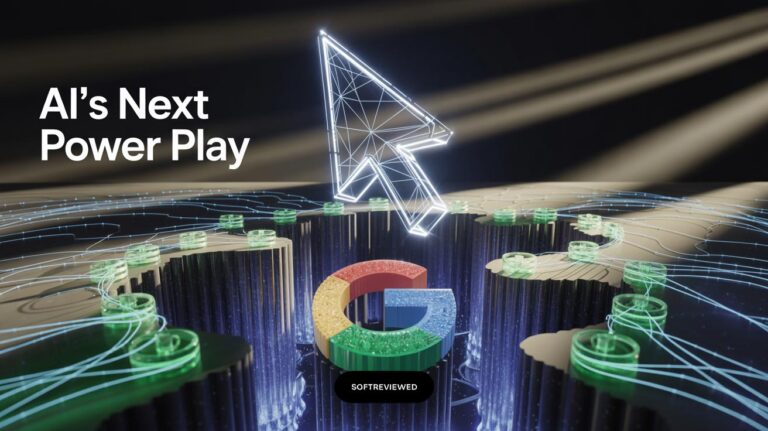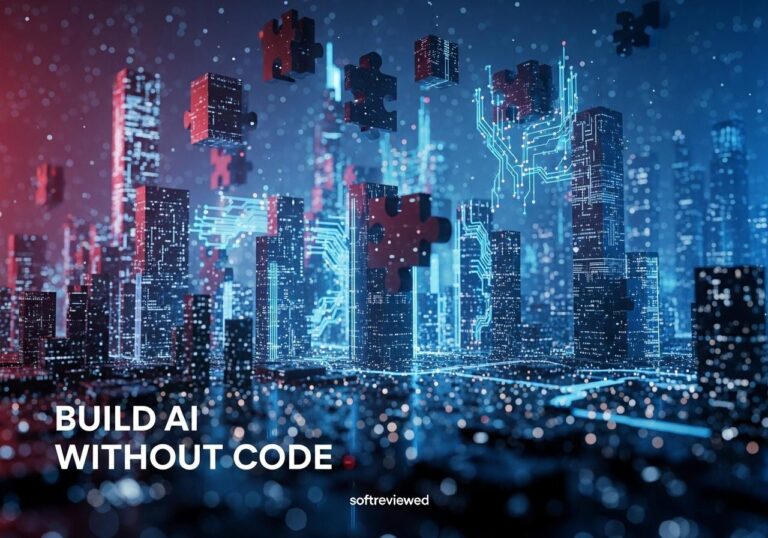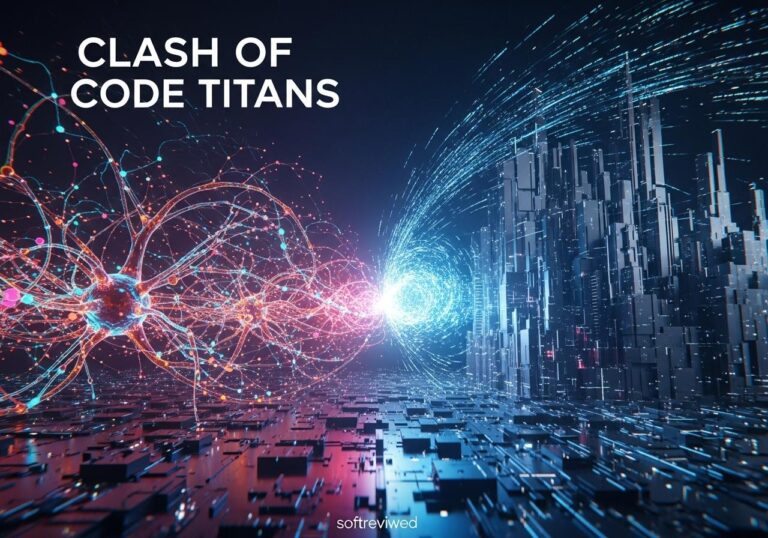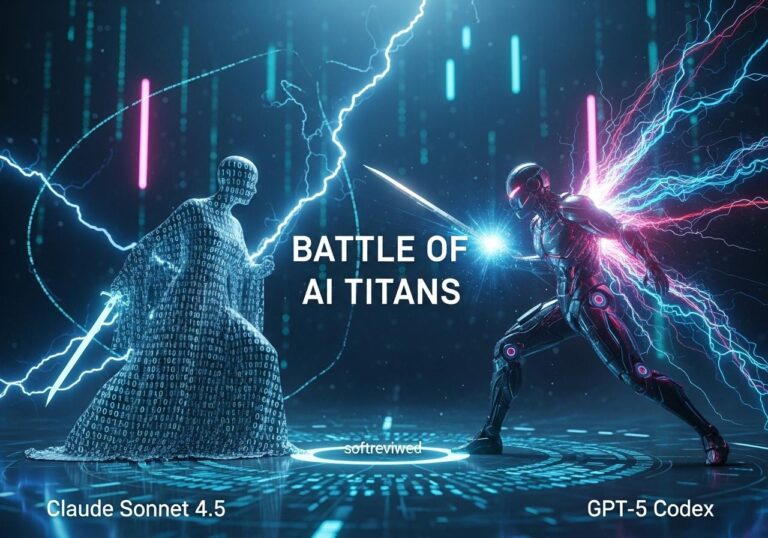Replit’s Strategic AI Development Ecosystem
How Replit is building a diversified AI infrastructure to power the next generation of coding tools while maintaining strategic independence
🔌 Google Collaboration for Scalable AI Infrastructure
Replit has partnered with Google to leverage TPUs and Gemini models, creating a robust foundation for their advanced coding capabilities. This infrastructure enables Replit to process complex code structures and deliver real-time AI assistance at scale across millions of projects. This partnership not only enhances Replit’s coding functionalities but also streamlines workflows for developers by providing unparalleled computational power. Users can access sophisticated features such as the Gemini 2.5 flash overview, making it easier to navigate through their coding tasks. As a result, Replit is positioned to redefine the way developers interact with code, fostering a more efficient and innovative coding experience.
🤝 Strategic AI Model Partnerships
Rather than relying on a single AI provider, Replit has built a diversified ecosystem integrating Claude, Gemini, and their proprietary “Tab” models. This multi-model approach allows developers to select the best AI for specific coding tasks while ensuring service continuity and performance optimization.
💰 Enterprise-Driven Revenue Growth
Replit is targeting power users and enterprise customers with premium $200/month Ultra plans that provide priority access to top-tier AI models. This strategy focuses on delivering exceptional value to heavy users who benefit most from advanced AI coding assistance, driving sustainable revenue growth.
🛡️ Model Diversity Over Dependence
By developing custom AI solutions alongside partnerships with flagship providers, Replit is hedging against third-party dependencies. This balanced approach ensures they maintain technological independence while still offering users access to the best models available in the rapidly evolving AI landscape.
🧠 Context-Aware Development Tools
Replit is outpacing competitors with innovative features like project-wide refactoring, Git-aware prompts, and semantic code editing. These tools understand the full context of codebases, enabling developers to make sweeping changes with confidence and accelerating development workflows beyond what traditional IDEs can offer.
The world of software development is buzzing. Cursor, the AI-first code editor that has been lauded as a significant leap over tools like GitHub Copilot, has entered a new phase. Anysphere, the company behind Cursor, has inked multi-year partnerships with a formidable lineup of AI powerhouses: Google, OpenAI, Anthropic, and xAI. This move grants Cursor users access to some of the most advanced AI models on the planet, including Google's Gemini family. But this strategic alliance is more than just a simple integration; it's a high-stakes bet that reveals the intense pressures and complex dynamics shaping the future of how we build software.
This isn't just a story about a new feature. It's about a rapidly maturing startup navigating a treacherous landscape where today's partners can be tomorrow's biggest competitors. We'll explore what this new chapter means for Cursor, its massive user base, and the broader competition in the AI coding assistant market. This collaboration brings immense power to developers' fingertips but also introduces new pricing complexities and strategic questions that could define Cursor's future.
The AI Code Editor That Won Developers' Hearts (And Venture Capital)
Before we unpack the new partnerships, it's essential to understand why Cursor has captured the attention of developers and investors alike. It's not just another plugin; it's a fundamental reimagining of the coding environment.
From MIT Dorm Rooms to a Multi-Billion Dollar Valuation
Anysphere, founded in 2022 by a group of four friends from MIT, has had a meteoric rise. Frustrated by the repetitive and clunky nature of existing developer tools, they envisioned an editor that was truly built around AI from the ground up. Their creation, Cursor, started as a fork of the popular Visual Studio Code but quickly evolved into something much more.
The market responded with enthusiasm. Developers praised its intuitive interface and powerful features, with some claiming it delivered a "2x improvement over Copilot." This grassroots support was mirrored by venture capitalists. In less than three years, Anysphere has raised hundreds of millions of dollars, achieving a staggering valuation of $9.9 billion by June 2025.
What Makes Cursor Different from Your Average Code Editor?
Cursor’s magic lies in its deep integration of AI into the core development workflow. It's designed to be a collaborative partner, not just a passive assistant. Here are some of the features that have developers hooked:
- 🧠 Codebase-Aware Chat: You can ask questions about your entire project, and Cursor will use its understanding of your code to provide intelligent answers.
- ✏️ Natural Language Editing: You can select a block of code and simply tell the AI what changes to make in plain English.
- 🐞 Automated Debugging: Cursor can spot errors, suggest fixes, and even apply them for you, dramatically cutting down on time spent hunting for bugs.
- 🔮 Predictive Autocomplete: The "Tab-to-complete" feature often feels like it's reading your mind, suggesting multi-line edits that anticipate your next move.
This seamless experience has led to a loyal following, with over 50,000 teams reportedly onboarded and experiencing significant productivity gains.
A New Alliance Forged: Teaming Up with Google, OpenAI, and More
Cursor's recent announcement isn't about an exclusive deal with a single provider. Instead, it's a strategic move to bring the best of the AI world into its editor, giving users unprecedented choice and power. This initiative not only enhances the user experience but also opens up new possibilities for integrating trust tokens and cursor ai. By allowing users to select their preferred AI tools, Cursor is fostering a collaborative environment where innovation can thrive. This evolution signifies a commitment to prioritizing user empowerment in an ever-evolving digital landscape.
Not Just One, But Many: A Multi-Provider Strategy
By partnering with Google, OpenAI, Anthropic, and xAI, Anysphere is ensuring that Cursor users have access to a diverse set of "frontier models." This means you can choose the AI that best suits your specific task, whether it's the creative power of OpenAI's latest GPT model, the nuanced understanding of Anthropic's Claude, or the robust capabilities of Google's Gemini 2.5 Pro.
This multi-provider approach is a savvy move in a market where the "best" model can change with each new release. It provides flexibility and hedges against becoming too reliant on a single partner.
What This Means for Your Code: Access to Frontier Models
For you, the developer, this translates to more powerful and accurate AI assistance. When you're tackling a complex problem, you can leverage models that cost more per request but deliver superior results. According to Anysphere, this access was a highly requested feature from power users who wanted more predictable access to high-end AI compute.
These partnerships also enable integrations that go deeper than simple text generation. For instance, there are now MCP (Model Context Protocol) servers that allow AI assistants like Cursor to interact directly with your Google Cloud Platform environment, making it possible to manage cloud resources using natural language. You can explore these integrations further on the official Cursor Directory.
The Inevitable Trade-Off: A Look at the New Pricing Structure
This newfound power comes at a cost—literally. Accessing these cutting-edge models from external providers is expensive. To manage this, Cursor has shifted its Pro plan from a fixed number of requests to a usage-based credit system.
The $20/month Pro plan now includes $20 worth of usage on these frontier models, charged at their API rates. While unlimited use of Cursor's "Auto" model (which intelligently routes requests) is still included, heavy use of premium models like Claude Opus or Gemini 2.5 Pro can deplete your credits quickly.
This change initially caused significant backlash from the user community, with many caught off guard by unexpected charges. Anysphere's CEO, Michael Truell, acknowledged the poorly communicated rollout and offered refunds to affected users. The company has since clarified its pricing, but the incident highlights the economic realities of building an AI business on top of other companies' platforms. For those who need more, a new "$200/month Ultra" plan offers 20 times more usage.
| Plan Feature | Old Pro Plan | New Pro Plan |
|---|---|---|
| Price | $20/month | $20/month |
| Core Offering | 500 "fast" requests | $20 credit for frontier models |
| Unlimited Usage | "Slow" requests after limit | "Auto" model requests |
| Model Access | Limited selection | Access to Google Gemini, OpenAI GPT-4.1, Anthropic Claude, etc. |
| Cost Control | Fixed request limit | Usage-based credits with optional spending caps |
The Elephant in the Room: Google as Both Partner and Competitor
The partnership with Google is particularly fascinating because Google is simultaneously a key technology provider and a direct competitor in the AI coding space. This dual role creates a complex and potentially fraught dynamic.
Introducing Firebase Studio: Google's Own AI Coding Playground
In early 2025, Google quietly launched Firebase Studio, a cloud-based IDE that is deeply integrated with Google's AI models and cloud services. Described as an evolution of Project IDX, Firebase Studio aims to provide an all-in-one environment where developers can go from an idea to a fully deployed application without leaving their browser.
Firebase Studio leverages the Gemini family of models to assist with everything from prototyping to coding and deployment. It represents a direct challenge to Cursor's vision, offering a tightly integrated, "all-Google" experience.
A Tale of Two Philosophies: Integrated Assistant vs. All-in-One Platform
This sets up a classic strategic showdown:
- 📌 Cursor's Approach: To be the best-in-class AI assistant that works within a familiar environment (a VS Code fork) and integrates with the best models, regardless of who makes them.
- 📌 Google's Approach: To create a walled-garden ecosystem where the AI, the editor, and the cloud platform are all seamlessly connected, encouraging developers to stay within the Google ecosystem.
Some analysts argue that while Cursor currently has a strong product, its long-term vulnerability lies in this infrastructure gap. The very platforms providing its AI models, like Google, could easily integrate similar (or better) features into their own developer tools, potentially commoditizing what makes Cursor special.
A Strategic Poach: Google's Acquisition of Windsurf's Top Talent
Adding another layer to this drama, Google recently made a massive talent acquisition, hiring the CEO and key team members from Windsurf, another AI coding startup that OpenAI had been in talks to acquire. While not a full acquisition of the company, Google secured a license to some of its technology. This move signals Google's aggressive intent to dominate the agentic coding space, directly competing for the same developer audience that Cursor serves.
Voices from the Dev Community: Praise, Frustration, and a Glimmer of the Future

The reaction to Cursor's evolution has been a mix of excitement and concern, reflecting the opportunities and challenges of this new era of AI-assisted development.
The Power User Perspective: Unlocking Unprecedented Capabilities
For many advanced developers, the partnerships are a massive win. The ability to switch between powerful models on the fly and tackle highly complex coding tasks with AI assistance is a capability that was previously unavailable. Testimonials from developers at companies like Vercel, Figma, and Notion praise Cursor for making them significantly more productive.
The Backlash: Navigating Pricing Changes and User Trust
The clumsy rollout of the new pricing model served as a stark reminder that developers are sensitive to changes that impact their workflow and budget. The initial confusion and frustration demonstrated how crucial clear communication is, especially when a beloved tool changes its core value proposition. While Anysphere has worked to rectify the situation, rebuilding that trust is an ongoing process.
Expert Opinions: A Necessary Step or a Risky Gamble?
Industry observers see Anysphere's multi-partner strategy as a necessary adaptation to market realities. Relying on a single AI provider would be incredibly risky. However, these partnerships also expose Cursor's business model to the whims of its large-scale partners. If Google or OpenAI decides to increase their API prices or restrict access, Cursor would be in a difficult position. The core challenge is building a durable competitive advantage when the underlying technology is owned by others.
The Road Ahead: Can Cursor Navigate a Landscape of Giants?
Anysphere's journey from a dorm room project to a multi-billion dollar company has been remarkable. But its biggest challenges lie ahead. The central question is whether it can build a sustainable business and a protective "moat" around its product in a market where the ground is constantly shifting.
The Quest for a Sustainable Moat
Cursor's best defense is its relentless focus on the user experience. By creating an editor that is more intuitive, more responsive, and more deeply integrated into the developer's thought process than any competitor, it can maintain its loyal user base. The company is also developing its own proprietary models, which could reduce its reliance on external partners and provide a unique technological edge in the long run.
The Future is Collaborative: Human-AI Programming Takes Center Stage
Ultimately, the success of tools like Cursor and Firebase Studio signals a fundamental shift in software development. The future isn't about AI replacing developers, but about creating a powerful synergy between human creativity and machine intelligence. The goal is to make programming "an order of magnitude faster, more fun, and more creative."
Decoding the Partnership: Your Questions Answered
Let's quickly address some common questions about this new development.
Is this an exclusive deal with Google?
No, it is not. Cursor has partnered with Google, OpenAI, Anthropic, and xAI to offer a range of models.
Will my code be shared with Google and other providers?
Cursor has a "Privacy Mode" that, when enabled, prevents your code from being stored remotely without your consent. The company is also SOC 2 certified, which is a standard for data security. However, when you use an external model, your prompts and relevant code snippets are sent to that provider's API for processing.
What does the future hold for Cursor's own models?
Anysphere is actively developing its own custom models to power features like its super-fast autocomplete. This is a critical part of its long-term strategy to differentiate itself and control its own destiny.
Final Thoughts: A New Chapter in AI-Assisted Development
Cursor's partnership with Google and other AI leaders is a landmark moment. It provides developers with an incredible arsenal of tools, but it also lays bare the economic and strategic complexities of the AI revolution. Anysphere has placed a bold bet that by offering choice and a superior user experience, it can thrive in a market of giants.
For developers, the immediate future is bright, filled with powerful new capabilities that promise to augment our skills and accelerate our work. The journey of Cursor will be a fascinating one to watch, as it may very well chart the course for the next generation of software development.







